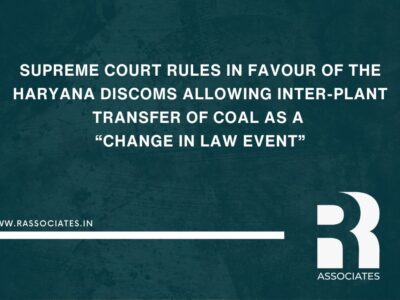In a landmark ruling by Justice Tarlok Singh Chauhan & Satyen Vaidya, the Himachal Pradesh High Court (HPHC) has declared the Himachal Pradesh Water Cess on Hydropower Generation Act, 2023, unconstitutional, following a challenge by power generation companies operating in the state. The verdict, delivered after thorough consideration of the petitioner’s arguments, marks a significant legal precedent in the realm of state-level taxation on water usage for electricity production. The judgment not only underscores the crucial balance between state and central legislative powers but also reaffirms the importance of constitutional principles in safeguarding the rights and interests of stakeholders in the energy sector.
Facts of the Case
The court’s decision, rendered by a division bench of Justices Tarlok Singh Chauhan and Stayen Vaidya, comes from writ petitions filed by some private power-producing companies and central hydropower-generating undertakings. They contended that the provisions of the Act exceeded the state’s legislative competence as defined in Articles 246 and 265 of the Constitution of India. The verdict, delivered in a 100-page judgment, specifically targeted sections 10 and 15 of the Act, which dealt with the fixation and liability to pay cess for existing projects, respectively. Furthermore, the court ordered the refund of money collected from the petitioners under the Act’s provisions within a specified timeframe. However, the ruling underscores the critical importance of adhering to constitutional principles and legal boundaries in formulating fiscal policies, particularly those impacting vital sectors like hydropower, which play a pivotal role in the state’s economic landscape.
Contentions of petitioners
The petitioners, primarily private power-producing companies and central hydropower-generating undertakings raised several contentions against the Act. They argued that the state lacked legislative competence to levy a cess on water usage for electricity generation, as it exceeded its jurisdiction under Article 265 and Entries 17 and 53 of List II. Additionally, they contended that the Act intruded upon the legislative powers of the Union Government, particularly regarding inter-state rivers, as per Entry 56 of List I. Furthermore, they highlighted concerns regarding the retrospective effect of the Act, its impact on vested rights, and its potential violation of constitutional provisions such as Articles 14, 19 and 300A.
Defence of the State
The state government defended its position by asserting its legislative competence under Article 265 of the Constitution of India to levy charges on water usage, citing Entry 17 of List II, which falls within the State’s jurisdiction. It argued that the water cess was not levied on electricity generation but on the usage charges for water, falling under Entry 17 of List II. Moreover, it contended that the Act aimed to create additional revenue sources for the development, management, maintenance and conservation of water resources in the state.
Points for Consideration
- It is inappropriate that the tax is levied on water, whereas it is on the generation of electricity and therefore, not a water tax.
- The State Legislature is not competent to legislate the Act.
- In the Act, there is no taxing provision. Tax has been imposed by way of notifications by the concerned Secretary to the Government of Himachal Pradesh. The act of levying of tax is an excessive delegation by the State Legislature.
- The principle of promissory estoppel would apply in the instant case; therefore, the State is estopped from charging such a tax.
Analysis of the court
The analysis of the HC on this judgment is centered around several key points:
Constitutional Competence:
It found that certain provisions of the Act exceeded the state’s legislative competence as per Articles 246 and 265 of the Constitution of India.
Taxing Provisions:
It observed that taxes were imposed through executive actions, such as notifications by the Secretary to the Government of Himachal Pradesh, rather than being explicitly outlined within the statute itself. This raised concerns about the delegation of taxation powers by the State Legislature.
Promissory Estoppel:
The court considered the principle of promissory estoppel in its analysis. It evaluated whether the State Government’s prior commitments, particularly regarding the availability of water for hydropower projects, should preclude it from imposing the contested tax.
Impact on Revenue and Projects:
The judgment also discussed the practical implications of the ruling, highlighting the significant revenue loss for the government and the potential impact on hydropower projects in the state.
Conclusion
The judgment by the HPHC regarding the constitutionality of the water cess on hydropower generation marks a significant milestone in legal interpretation and governance. Through meticulous judicial analysis, the court scrutinized the legislative competence, procedural validity and adherence to constitutional principles underlying the imposition of the water cess. By declaring certain provisions of the Himachal Pradesh Water Cess on Hydropower Generation Act, 2023 unconstitutional, the court reaffirmed the importance of adherence to constitutional mandates and the rule of law.
This judgment not only highlights the critical role of judicial interpretation in upholding constitutional principles but also underscores the necessity for legislative precision and procedural clarity in enacting taxation laws. Furthermore, the court’s consideration of principles such as promissory estoppel reflects a nuanced understanding of legal doctrines and their application in contemporary governance contexts.





